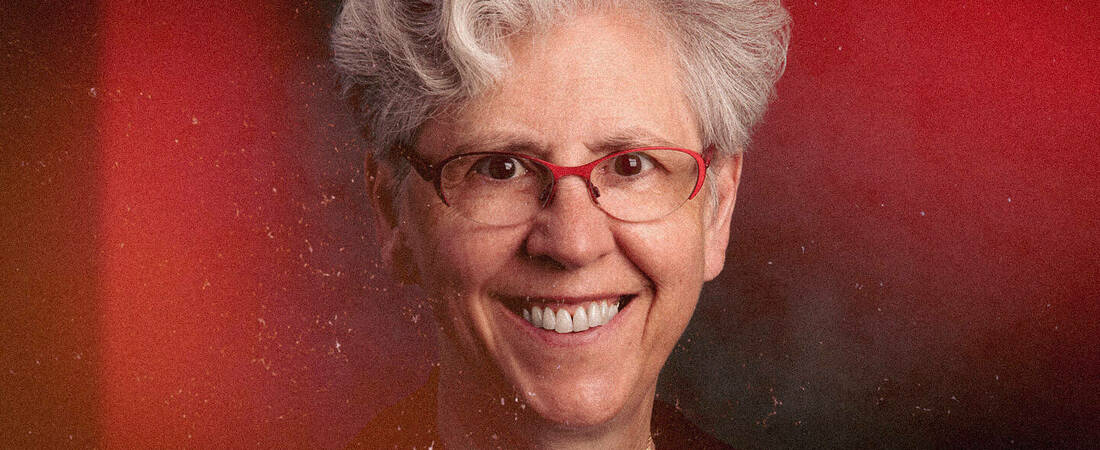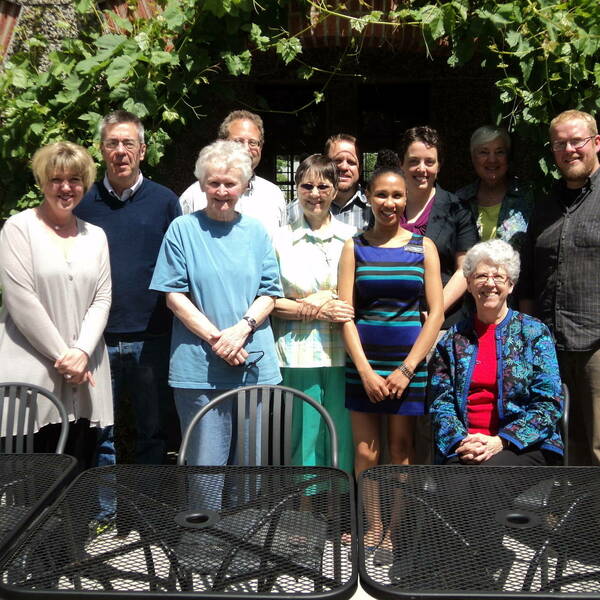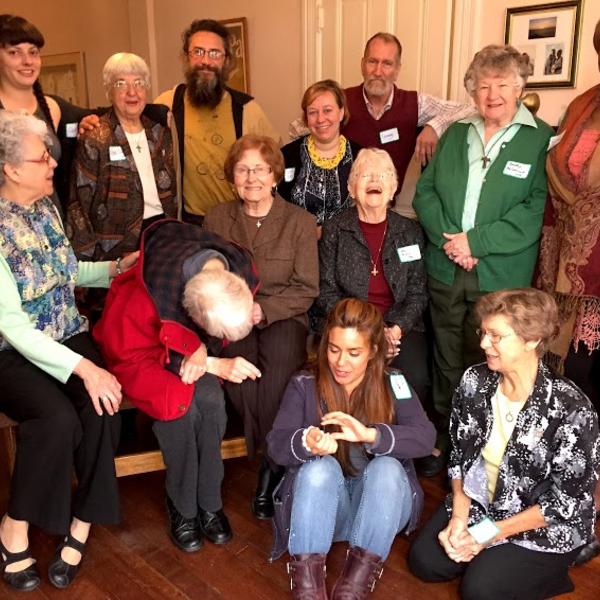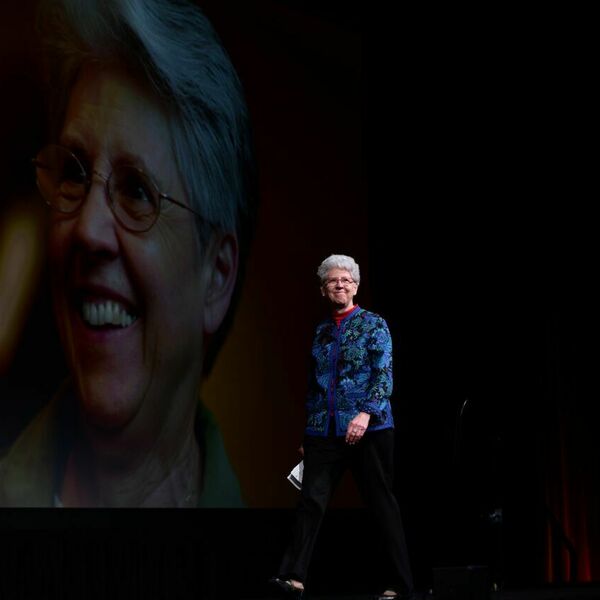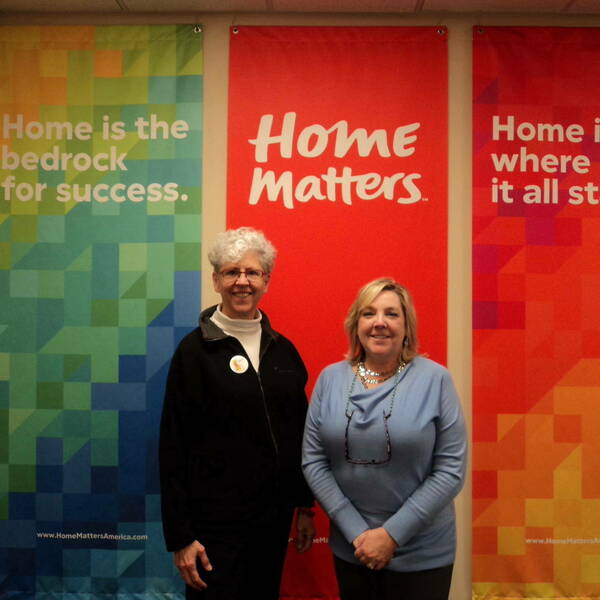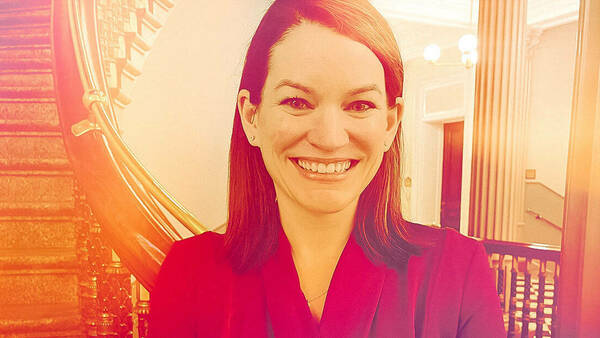When Sr. Corinne Florek, O.P., ’80 M.B.A. enrolled in Notre Dame’s M.B.A. program, the plan was to work in the finance office for her order, the Adrian Dominican Sisters, after graduation. One of the sisters in congregation leadership noticed her strong background in math and suggested it, but in the end, Florek never did work in their finance office. Instead, she has spent the past 40 years working with various religious communities and nonprofits to engage in community development investing.
Florek doesn’t do the kind of investing you’ll see on TV’s “Shark Tank,” where millionaires look for profits and a return on investment. Instead, she’s focused on investing funds from religious communities to support organizations that combat economic and social inequities.
“No, this is not venture capital; this is common good capital,” Florek says. “I’m working in partnership with these people to help them thrive. What we’re trying to do is go into those communities that are under-invested and say, ‘You have good ideas and we will partner with you to make them a reality.”
Florek founded the Religious Communities Impact Fund (RCIF) in 2008 to facilitate this type of common-good investing. The RCIF encompasses more than 35 religious congregations, which pool their individual assets to fund larger investments in nonprofit organizations and community development financial institutions (CDFI’s) that address economic inequalities. Florek has helped religious orders invest in everything from Equal Exchange, a fair-trade coffee, tea, and chocolate company; to a sewing co-op for Latinx women in Santa Fe, New Mexico; to a daycare center for farmworker families in Watsonville, California, and credit unions in low-income communities.
Florek, who attended Catholic schools growing up in Michigan, joined the Adrian Dominican Sisters after she graduated from high school in 1966. Florek chose the Adrian Dominicans in her home state because she loved “the light and sunshine of the place as well as the joyfulness of the sisters” when visiting their motherhouse in Adrian. She entered the congregation, went to college at Siena Heights University, and then taught math and religious education for a few years before heading to Notre Dame for the M.B.A. program.
“At Notre Dame I lived with four other sisters and we just had a wonderful community; there were a couple of Xaverian brothers on campus and we would get together,” Florek says. “Friday night was our time to relax, Saturday during the fall was football games, and Sunday we were back studying.”
Florek wrote an economics paper at Notre Dame about cooperatives, which are based on the idea that those who work in an enterprise should also own and govern it, and says she fell in love with them as an economic model. It was fitting when her first job after graduation was conducting business training for women who ran cooperatives in Berea, Kentucky. From there, she moved to Pine Knot, Kentucky, where she managed a rural cooperative of 50 families. They had a woodshop, and cooperative members also did weaving, pottery, and quilting, and Florek took their wares to craft fairs all over the East Coast and Midwest. Her experiences in Pine Knot enabled her to see poverty and its effects on people in a very personal way, she says.
While she was managing the cooperative, Florek got involved with her order’s Portfolio Advisory Board, which was involved in promoting economic justice both through shareholder actions and investing in nonprofit organizations. In the 1970s the sisters were very concerned about social issues, and at the same time realized they had to save for the retirement needs of their sisters. This resulted in two competing interests: the Christian ideal that those with money are called to give it to the poor, versus the practical, financial reality of saving for retirement. The engagement in shareholder activism as well as using some of their funds to invest in low-income, low-wealth communities became one way to do both.
“We depend on God and trust in God, but God also expects us to be co-creators of justice and peace," Florek said in reflection. "If you read the history of sisters through the years, how they developed hospital and school systems, they trusted in God and were very practical co-creators.”
When it was time to leave Pine Knot in 1984, she focused more fully on community investing, working as the director of economic development at the Catholic Campaign for Human Development; as a microenterprise loan fund manager of the Women’s Initiative for Self-Employment in San Francisco; and then coordinator of JOLT, the Justice Organizers, Leadership, and Treasurers coalition of faith-based organizations that worked together on shareholder actions as well as community development investing. From there, Florek worked for various religious communities managing their community development portfolios.
These days, Florek lives in Oakland, California, and has stepped down from the day-to-day running of RCIF to work on a book called Investing for Justice: The Pioneering Efforts of Catholic Religious Women. Florek says that a key aspect of her and other religious communities’ investing over the years is providing loans not grants, though grants were given through other programs.
“I’m often asked, 'Why a loan?' Because when we give them a loan it is usually for five years. And what we’re saying to them is, ‘I believe you have a future,’” she says. “A loan [says], ‘I’m going to give you a means to create an asset that will outlive our partnership. I am not a bank; I’m not going to foreclose on you. We can be patient, adjust the terms, etc. The point is to help people succeed, not to make money.”
And hopefully create a more just economic system for all based on the common good.
